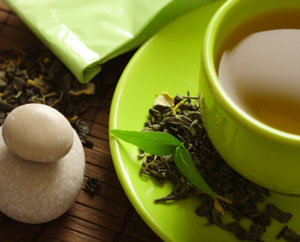Green Tea Lowers Cholesterol

Pooling the green tea data
The meta-analysis, published in the American Journal of Clinical Nutrition, included 14 trials with a total of 1,136 participants. These trials looked at the effect of taking green tea, either as a beverage or as a supplement, on cholesterol levels. The analysis yielded the following findings:
- Green tea was associated with significant reductions in both total and LDL-cholesterol levels. Green tea did not affect HDL (“good”) cholesterol levels.
- Drinking green tea and taking green tea extract supplements were both effective for lowering cholesterol levels.
- Both high and low amounts of catechins, the main antioxidants found in green tea, reduced cholesterol levels.
- Cholesterol level reductions were seen in both healthy people and people with high risk of heart disease.
- Results were seen in as little as three weeks of green tea use.
“These results suggested that green tea may be incorporated into a targeted dietary program as part of public health policy to improve cardiovascular health,” the study’s authors said. “Because most Americans drink high-calorie beverages or alcohol on a daily basis, and only 20% of Americans consume low-calorie green tea, the potential for meaningful intervention is real.”
Getting the most out of your cup of green tea
Adding green tea to your daily routine may be an easy way to enhance a cholesterol-lowering lifestyle that includes daily exercise and a healthy diet. Here are some things to know to help you get the most out of each cup:
- Use high-quality tea leaves. The most prized green teas are made from the budding shoots and contain the highest levels of catechins.
- Loosen up. Put a teaspoon of loose tealeaves for each cup (8 ounces) of water into a teapot or teacup.
- Pour the boiling water over the tea leaves and let it steep, covered, for three to five minutes. This ensures that your tea is rich in catechins and other tea compounds that might be beneficial.
- Keep it hot. The traditional way of preparing green tea—adding hot water repeatedly as the tea cools—increases the amount of catechins extracted from the leaves into the tea.
- Add a little milk. Early evidence suggests that milk, soy milk, and rice milk might enhance the absorption of catechins in the digestive tract.
- Mix your tea with a citrus juice like lemon, orange or grapefruit juice to increase catechin availability even more.
- Add a little honey. Honey has also been found to reduce cholesterol levels.
- Enjoy a second and third cup. To see health benefits, most experts agree that people should drink 3 or more cups per day.
- Caffeine sensitive? Consider a caffeine-free green tea extract supplement instead, since decaffeinated green tea leaves and bags have been found to have lower amounts of catechins.
(Am J Clin Nutr 2011;94:601–10)
Copyright © 2026 TraceGains, Inc. All rights reserved.
